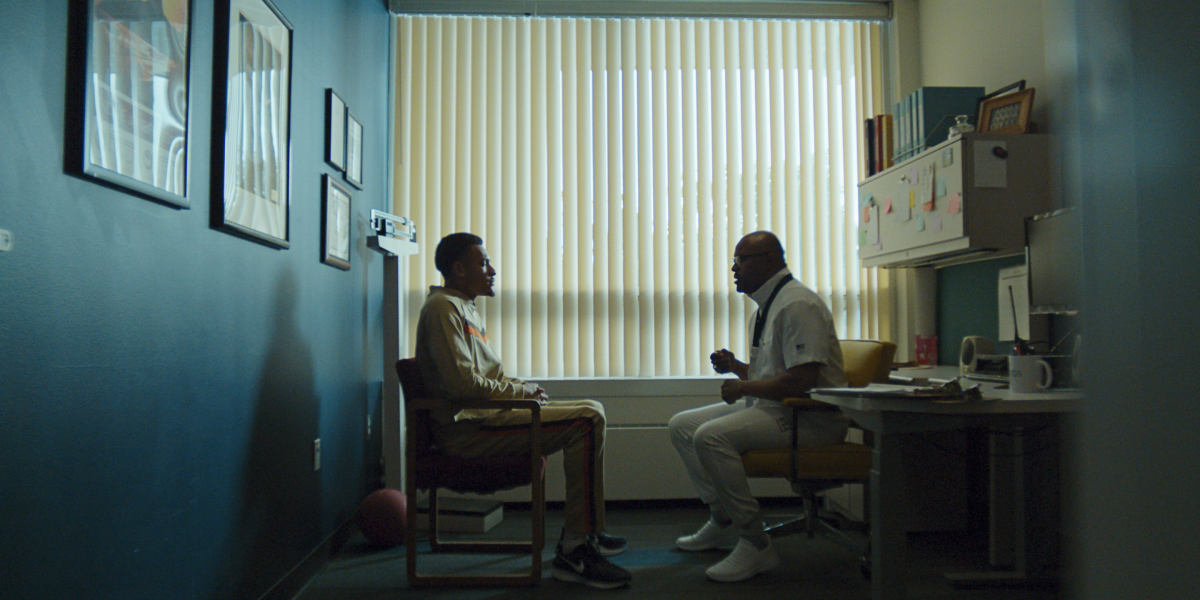I faltered; usually I’m the one asking questions during an interview. My thoughts drifted back to childhood, to hazy memories of my pediatric dentist. I remembered the aquarium in the waiting room, the wall of manila file folders behind the reception desk, the aroma of bubble gum fluoride thick in the stuffy office air. But, as Kweku Smith, PhD, had surmised, I couldn’t pinpoint my first visit because I’ve been a dental patient for as long as I can remember. Coincidentally, I had an orthodontist appointment the day of my phone interview with Smith, a psychological services provider for the U.S. Olympic and Paralympic Committee.
Pediatric dentists strive to make visits fun and allay children’s fears, Smith says. More importantly, children learn healthy habits and develop a relationship with their dentist, keeping up with the routine every six months. Absent this experience, going to the dentist as an adult would be terrifying, he says. We’re taught from a young age the importance of dental, medical, and eye care—why not mental health care?
“Most people look at it as an illness, as a diagnosis,” Smith tells Fortune. “But (what) if we did mental wellness treatment?”
I spoke with Smith shortly before he traveled to Paris, where the former Milwaukee Bucks team psychologist is now experiencing his first Olympics and Paralympics as a Team USA mental health care provider. While he and his colleagues are on call 24/7 throughout the Games for crises big and small, Smith encourages his patient athletes to check in for well visits when their mental health is in a good place. He recommends the general public take charge of their mental well-being the same way.
“I tell people, seek out services before you need it. That way, you have a person who can get a baseline on what’s average for you,” Smith says. “If they see things slowly deteriorating, they can pull a mirror to you to say, hey, let’s try these things. Or, unfortunately, if a trauma or tragedy happens, you have a professional as a part of your team who can be there.”
Smith adds, “Look at mental health just as you do your physical health—as we get a yearly physical, as we go to the eye doctor, as we go to the dentist on a regular basis. We don’t go every day. Sometimes you go on an as-needed basis until something happens, and then maybe you do a few more.”


Courtesy of Figs
Being proactive about your mental health also gives you time to find a health care provider who matches your needs and preferences, Smith says.
“Every psychologist and every therapist is not for every person. So if I don’t find the right person, guess what, I have time to look,” he says. “But if I’m going to you in the midst of a tragedy, if I’m going to you in the midst of some type of trauma, I almost have to bet that the first person I get is going to be helpful.”
When it comes to certain kinds of cancer and other deadly medical conditions, prevention and early detection save lives. Smith approaches mental health care the same way.
“[Don’t] just look at it from the illness standpoint, but look at the mental health umbrella from wellness to illness,” Smith tells Fortune. “The quicker you get in on the wellness spectrum, the more you’re able to deal with the illness or to prevent the illness, or be able to have mediation services before it explodes…If I can find it quickly, there’s a better chance that I can have a greater probability of success.”
Smith’s push for people to nurture their mental well-being on sunnier days is part of his larger goal to destigmatize mental health treatment. You’ve probably never been ashamed to tell someone you had a dentist’s appointment; why should you be embarrassed about mentioning a visit with your therapist?
“Even if you’re great, you can always be better,” Smith says, “and that’s what I think about therapy.”
If you need immediate mental health support, contact the 988 Suicide & Crisis Lifeline.
For more on mental health:
Subscribe to Well Adjusted, our newsletter full of simple strategies to work smarter and live better, from the Fortune Well team. Sign up for free today.















